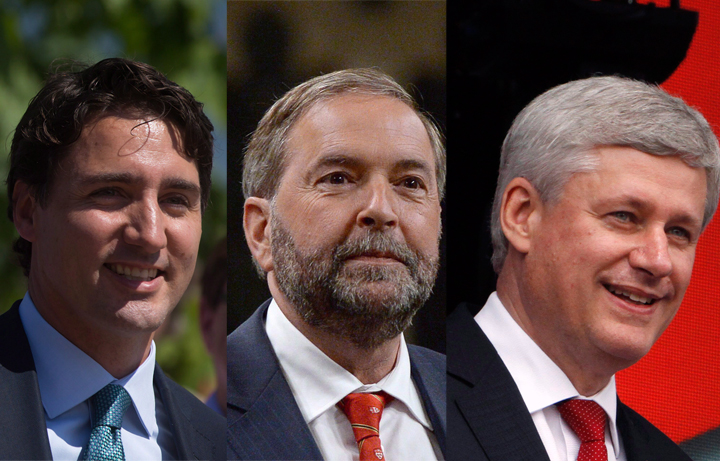WATCH: There are signs that a federal election could be called as early as Sunday – right in the middle of a long weekend. Since there is a fixed election date, on Oct. 1, it will be a very long and expensive campaign. Jacques Bourbeau reports.

UPDATE, SUNDAY AUG. 2: Stephen Harper launches longest election campaign in Canadian history
Prime Minister Stephen Harper is expected to ask the Governor General to drop the writ Sunday, marking the beginning of Canada’s longest federal election campaign in over a century.
While campaigning might not start in earnest until September, the long campaign is likely to help the Conservative Party – both in terms of money and strategy.
Before the Conservative introduced the Fair Elections Act, there was a defined spending limit for the campaign regardless of how long or short it was. That’s different now. Elections Canada sets the spending limit for each election based on the number of electors and candidates in order to level the playing field during the campaigns.
This year, the limit is expected to be around $25 million, but we won’t know for sure until the writ drops. If the writ drops Sunday, the campaign would be 78 days long and would push the spending limit to more than $52 million.
Who has the bigger budget?
Since the 2011 election, the Conservatives have raised $69 million, the Liberals more than $43 million, and the NDP roughly $30.5 million, according to Elections Canada filings. That trend has continued in 2015, as the Conservatives lead fundraising in the first quarter with nearly $6.4 million – over $2 million more than the Liberals, over $4 million more than the NDP.
The bigger budget is a big help to Conservatives, but it’s not the only reason a long campaign will help them, according to a former Conservative strategist.
“It’s more than money,” Tim Powers, a former Conservative strategist and vice chairman of Summa strategies in Ottawa said. “But if you don’t spend it to reflect the broader plans and strategies you have in place, then you might as well turn on the fire hose and piss the money away.”
He added that the Liberals and NDP might not have designed their strategies with a 78-day campaign in mind.
“[The Conservatives] obviously thought about this for a while to have a campaign of this duration,” Powers said.
Stephen Harper is the only one of the three leaders with experience campaigning as a federal leader and part of the benefit of calling an early election is to test the political prowess of Trudeau and Mulcair.
WATCH: Tom Clark explains what’s changed in the upcoming federal election.
READ MORE: Cost of living, economy among most important issues in upcoming election, says new poll
And spending more doesn’t necessarily win elections, said Nelson Wiseman, a politics professor at the University of Toronto. He pointed to the provincial Alberta election where the Progressive Conservatives outspent the other parties, and lost dramatically.
“It’s necessary but it may not be sufficient,” he said. “If there’s a strong appetite for change… there will be a swing.”
The Conservatives have been focusing their attacks on Liberal leader Justin Trudeau in recent months despite him trailing significantly in the polls. But that’s beginning to change. The Conservative Party of Canada released an ad on YouTube two days ago taking aim at the satellite office scandal, accusing the NDP of illegally spending taxpayer money.
“I think the Conservatives would like to see a slightly weaker NDP and a slightly stronger Liberal party,” Powers said.
Powers explained that the best case scenario for the Conservatives is for the two opposition parties to cannibalize each other’s support. The worst case for the Conservatives is the best case for the NDP, he said. And that’s for Tom Mulcair to be seen as the only candidate who can defeat Harper.
Third-party ads
The early election call also severely limits third-party advertising – much of which is targeted at Harper.
Engage Canada, a left-leaning political action committee, has been attacking Harper and the Conservatives with a barrage of ads for several months. That will stop once the campaign begins.
READ MORE: How much should third parties be allowed to spend on political ads?
Engage Canada spokesperson Jessica Hume said in an interview Thursday that the organization never intended to operate during the campaign. But an early election call forces Engage Canada and other interested groups to severely limit their actions.
“Calling it early would shut down critics including Engage Canada,” Hume said.
Third-party advertising is severely restricted during a campaign and limited to about $400,000 for the duration.
Election day is Oct. 19.
– With files from Amy Minsky



Comments